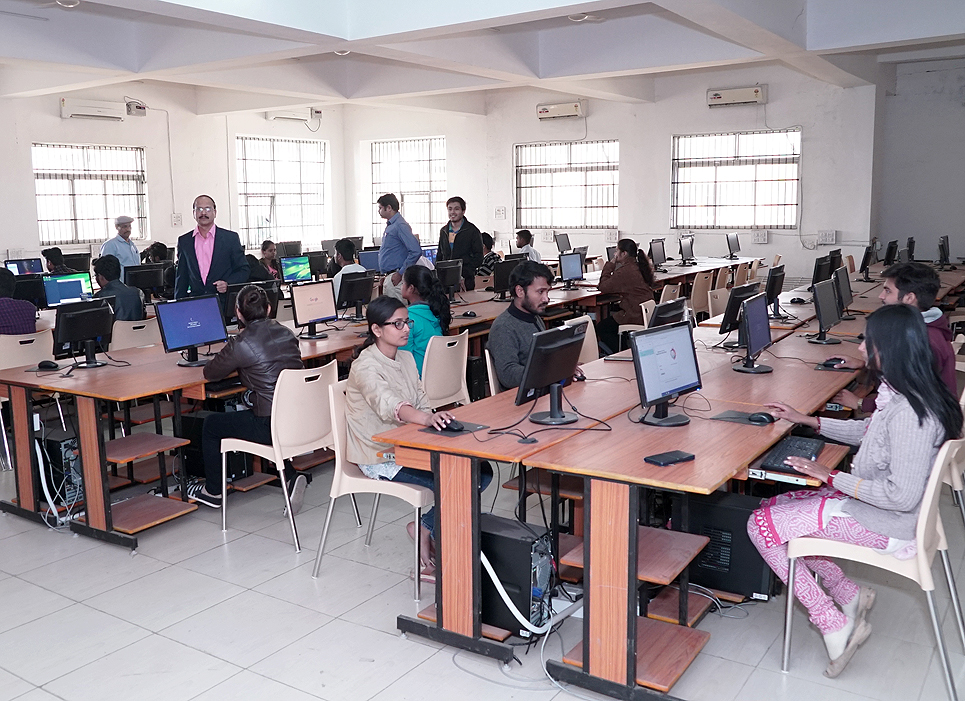Department of Computer Science Engineering
Government Engineering College, Raipur
PROGRAM EDUCATIONAL OBJECTIVES (PEOs)
The Program Educational Objectives of the GEC CSE program are:
PEO1: This course will make the students a establish professionals by solving real world problems and technical problems using analytical skill with the knowledge acquired by the field of computer science and engineering.
PEO 2: By this course students will adopt changing environment skills in advanced areas of computer science and can solve demonstrate designing skills by thinking creatively.
PEO 3: This course will make the student responsible leader as well as citizen whose strength contributes to diverse teams, expertise, and experiences.
PEO4: This course will build the professional career of the students to meet the needs of research and scientific work as well as in industry environment.
PEO5: This course will improve knowledge and skills to analyze, design, test, development and implement various software and hardware and be engaged in life-long learning.
PROGRAM OUTCOMES (POs)
Engineering Graduates will be able to:
• PO1 : Engineering knowledge: Apply the knowledge of mathematics, science,engineering fundamentals, and an engineering specialization to the solution of complex engineering problems.
• PO2 : Problem analysis: Identify, formulate, review research literature, and analyze complex engineering problems reaching substantiated conclusions using first principles of mathematics, natural sciences, and engineering sciences.
• PO3 : Design/development of solutions: Design solutions for complex engineering problems and design system components or processes that meet the specified needs with appropriate consideration for the public health and safety, and the cultural, societal, and environmental considerations.
• PO4 : Conduct investigations of complex problems: Use research-based knowledge and research methods including design of experiments, analysis and interpretation of data, and synthesis of the information to provide valid conclusions.
• PO5 : Modern tool usage: Create, select, and apply appropriate techniques, resources, and modern engineering and IT tools including prediction and modeling to complex engineering activities with an understanding of the limitations.
• PO6 :The engineer and society: Apply reasoning informed by the contextual knowledge to assess societal, health, safety, legal and cultural issues and the consequent responsibilities relevant to the professional engineering practice.
• PO7 : Environment and sustainability: Understand the impact of the professional engineering solutions in societal and environmental contexts, and demonstrate the knowledge of, and need for sustainable development.
• PO8 : Ethics: Apply ethical principles and commit to professional ethics and responsibilities and norms of the engineering practice.
• PO9 : Individual and team work: Function effectively as an individual, and as a member or leader in diverse teams, and in multidisciplinary settings.
• PO10 : Communication: Communicate effectively on complex engineering activities with the engineering community and with society at large, such as, being able to comprehend and write effective reports and design documentation, make effective presentations, and give and receive clear instructions.
• PO11 : Project management and finance: Demonstrate knowledge and understanding of the engineering and management principles and apply these to one’s own work, as a member and leader in a team, to manage projects and in multidisciplinary environments.
• PO12 : Life-long learning: Recognize the need for, and have the preparation and ability to engage in independent and life-long learning in the broadest context of technological change.

